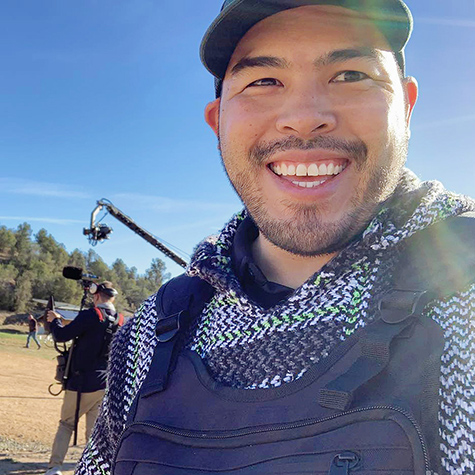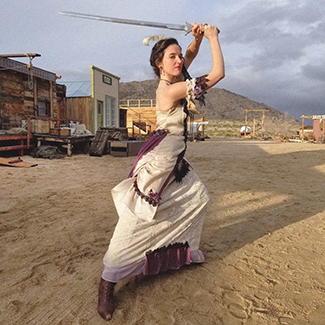First of all, I love learning. I know how valuable it is and I’m not saying that you won’t learn anything in film school.
If there is something you want in your life, a class can jumpstart you to do all the right things to make it happen. But a lot of people assume that film school is the only way in and even worse, they think film school will somehow give them an edge in the film business. This just isn’t true.
Film school requires a massive investment. Most film school graduates spend upwards of $60,000 on their degrees with no guarantee that they’ll ever get enough work to pay that off. The payment plan can easily amount to $600 per month… for 20 years!
A debt of $60,000 has a major impact on your life. That monthly obligation affects what you are able to do in life. That debt can make it much harder to pursue your film career!
In fact, film schools have no answer to, “How do you get the career you just paid for?” They say, “When you graduate, look for production assistant jobs.” But PA jobs are not what you went to college for, you paid for school to become a director, writer, animator, editor, actor.
But you don’t learn how to get those jobs. All they tell you to do, is work as an intern or PA.
How are you supposed to pay off $60,000 as a PA? PA jobs pay $200 per day and are freelance, meaning they can be sporadic. So, that’s why many graduates take another job while they pay off their debt. That job takes all their time and soon… the film career was just a nice idea. I want to make sure that doesn’t happen to you.
What’s the worst part? You’re going into debt for a degree. Nobody in the film industry cares about degrees. A degree in film doesn’t get you hired.
In fact, a degree in film can cause people not to be hired because the producer may think that they may have a “chip on your shoulder”….They really want to direct, so they won’t work that hard on set. I’ve heard producers say they’d rather hire a hard working, self starter than someone who says, “I have a film degree”.
Consider the statistics. Millions have film and theatre degrees and are bartenders. They are not working in the film industry.
The most important thing is your work ethic and attitude. If you have that, then all you need is the know-how to get into these crafts… and that is what this book is about.
Film industry is different than other industries.
What people don’t know is that the film industry isn’t like other industries where you apply, interview and land a job. There are no job openings and they are not looking for the best candidate.
Think of the film industry as these big professional groupings of people who specialize in film production, where everyone knows each other and understands this very specific work at hand.
Everyone and everything is contained in this massive professional world. There is no need to look outside of the professional world because plenty of people are already in it.
It’s just like a sports team where all the players know each other and have been working together for years. With very few words even spoken, they are able to play the game in such a precise way. They would never pull a fan from the stands. Everyone is hand picked and knows each other.
That is why a degree is not needed because people are not looking for good candidates… there are plenty of experienced people within. When they crew up for new productions, they want experienced, seasoned people. There is too much at stake for them to try out new people who can jeopardize the production.
So, does film school make you seasoned?
Unfortunately no. All the little details that go into setting up and running a film shoot can only be learned by working on professional sets. Consider the job you have today… Did you learn how to do it at college? Same thing for film industry. You will learn it all on set. So why pay a bunch of money when you’re going to learn the right way to do your job on set later anyway?
Bottom line: You have just as good of a chance at a career whether you went to film school or not.
Everyone “learns by doing” on professional sets. And you only learn it by being in all these situations on set, day after day, film shoot after shoot. You can’t learn even 1% of it at film school.
Each scene is unique and requires adjusting how to capture the end result. It’s never the same. There are always different locations, actions, wardrobe, performance that affect how every department does their job.
You learn all the little tricks on set. You also learn to anticipate the changes that come up, so you are ready for them. To be able to anticipate changes is a mark of a true professional.


